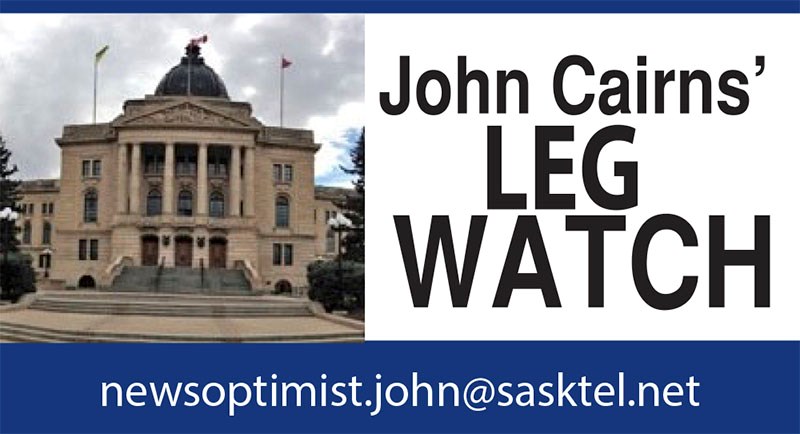Last week’s legislative session was an abbreviated one due to the statutory holiday and ceremonies on Wednesday marking Remembrance Day.
The House sat on Monday and Tuesday before adjourning for the rest of the week.
In the lead up to Remembrance Day were several speeches from MLAs recognizing the service of veterans and of the various legions around the province. This year marks the 70th anniversary of the end of the Second World War and the 90th anniversary of the Royal Canadian Legion.
One of the MLAs who spoke was Larry Doke, MLA for Cut Knife-Turtleford, who provided his remarks Monday afternoon. His remarks, recorded in Hansard, dealt extensively with the role of aboriginal people in the armed forces.
Mr. Doke: — Thank you, Mr. Speaker. I am honoured today to say a few words on the 70th anniversary of the end of the Second World War and the 90th anniversary of the legion. My father-in-law, along with two of his brothers from the Saulteaux First Nation, fought in the Second World War.
Mr. Speaker, Aboriginal peoples from every region of Canada served in the armed forces during the Second World War, fighting in the every major battle and campaign of the conflict. To serve their country in the armed forces, aboriginal Canadians had to overcome unique cultural challenges. Their courage, sacrifice and accomplishments are a continuing source of pride to their families, communities and all Canadians. At least 3,000 treaty Indians, including 72 women, enlisted as well as an unknown number of Inuit, Métis and other natives. The actual numbers were no doubt much higher. Among this small number of identified aboriginal members of the forces, at least 17 decorations for bravery in action were earned.
Mr. Speaker, aboriginal soldiers were recognized as effective snipers and scouts endowed with courage, stamina and keen observation powers. The brave native men and women who left their homes during the Second World War to contribute to the struggle for peace were true heroes. The extra challenges that they had to face and overcome make their achievements more notable. Aboriginal Canadians have demonstrated time and again their great service and sacrifice for our country through their participation in Canada’s military, particularly during times of conflict.
Mr. Speaker, I’d like to say a few words about the legion. Initially the principal objectives of the legion were to provide a strong voice for First World War veterans and advise the government on veteran issues. However the Second World War brought an influx of new demands and the legion increased efforts to help veterans and returned service members as well as those serving abroad. Legion members care deeply about supporting the men and women who serve this country and want to make a difference in the lives of veterans, contribute to our communities, and remember those who made the ultimate sacrifice for our country.
When you join the legion, you support the many services that they offer to veterans, service military, RCMP and their families. Legion members contribute countless volunteer hours and fundraise millions of dollars each year for their communities. The legion is a not-for-profit organization funded by the membership fees and operating without government grants or financial assistance from the government for their operations.
Mr. Speaker, legion branches are the cornerstone of their communities, and legionnaires raise funds for a variety of activities and charities. Annually approximately $6.5 million is donated back into the community. For my father-in-law, the legion was a place he went where the horrors of war and the loss of good friends is understood. It was a place of refuge and security. Mr. Speaker, I ask all members to congratulate the Legion on 90 years of success.




